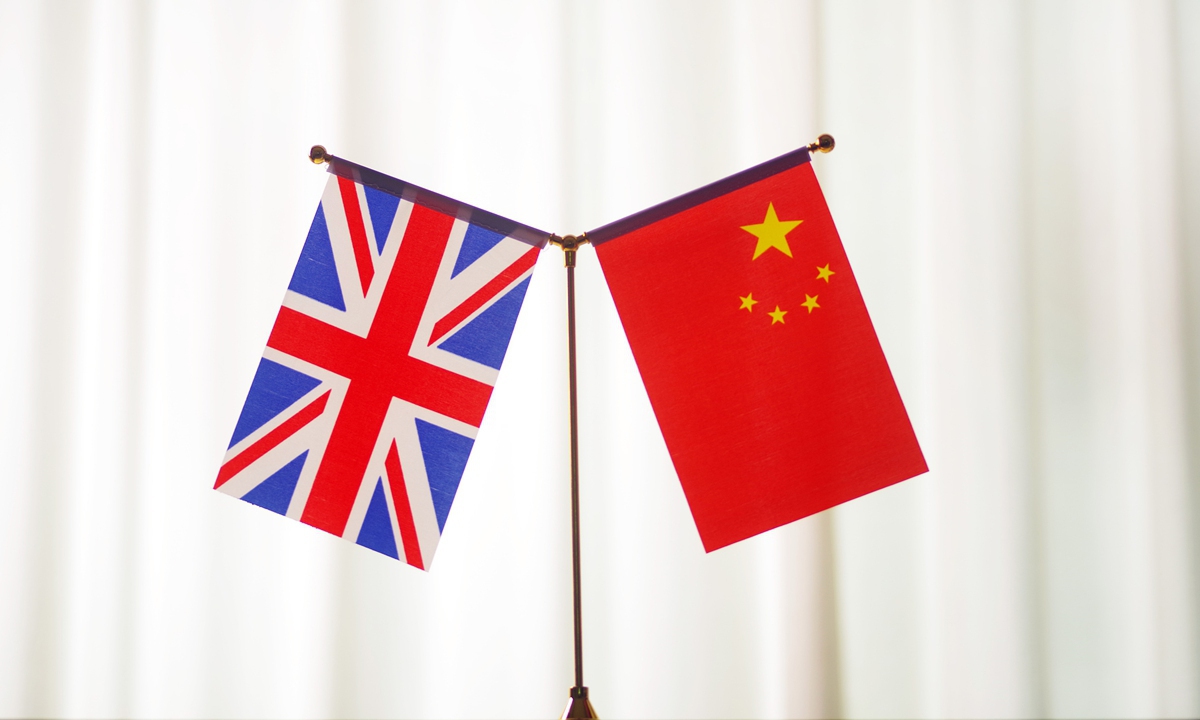
China UK Photo: VCG
Britain "needs more engagement with China," the country's Trade Secretary Jonathan Reynolds told POLITICO on the sidelines of the recently elected UK Labour government's International Investment Summit.
If "more engagement" allows more room for economic cooperation to grow, it will almost certainly bring positive contributions to inbound investment in the UK.
Since British Prime Minister Keir Starmer took office in July, "more engagement" seems to have taken place through dialogue and exchanges between high-level Chinese and British officials.
For instance, the related officials on both sides had a phone call in September to exchange views on restarting the China-UK Economic and Financial Dialogue and enhancing trade and economic cooperation. Now, Reynolds' words have added further to evidence that the British side wants to continue to enhance its engagement with China.
Constructive interaction between China and the UK is obviously beneficial to the interests of both countries, and it meets the expectations of the business community. The growing strong desire of enterprises and trading companies to boost bilateral trade and investment underscores an undeniable demand for enhanced economic cooperation within the regional industrial chain, which cannot be easily suppressed.
As long as bilateral economic and trade cooperation can be freed from political constraints and interference, there will be great potential for such cooperation. This is determined by the economic complementarity and the industrial structures of the two countries.
Generally speaking, if constructive dialogue helps to ease political misunderstandings, its contribution to developing and unleashing the potential of market-oriented economic cooperation will be multiplied.
Bilateral relations have experienced ups and downs in recent years, with analysts attributing this mainly to Britain's hype about political security, human rights and other issues. We hope London will commit to developing a stable and mutually beneficial China-UK relationship.
Any progress in increasing political trust, even if small, is meaningful, as it will step up economic cooperation exponentially, given the high complementarities and potential in economic cooperation.
This situation will help boost the UK economy, particularly in the area of investment. Now, through multiple measures, the UK is attracting tens of billions of pounds of new investment, which is crucial to the recently elected UK Labour government's driving mission of delivering economic growth.
Britain has become one of the European countries receiving the most investment from Chinese enterprises. Overall, Chinese companies remain positive about investing in the UK, with both sides investing not only in traditional areas such as trade, finance, manufacturing and infrastructure, but also in emerging areas such as healthcare, green technology, green finance, new energy, the digital economy and creative industries.
Things don't always go smoothly, because uncertainty remains about the future. Britain has reportedly tightened restrictions on Chinese investment in the past few years, following US President Joe Biden's move to limit US investment in some Chinese advanced technology companies.
While some British people see China as an essential partner to the UK or a benign competitor, some anti-Chinese politicians see China as a rival and a challenger. Their irrational concerns increase the uncertainty of the development of economic ties between the two countries.
The British economy is in urgent need of foreign investment to support employment and boost economic growth, and China, with its financial strength, is one of the best sources of investment.
However, the British economy's appeal to Chinese investment will largely depend on whether London is willing to treat Chinese investors in a fair and non-discriminatory manner, and whether it can effectively contain the uncertainty that affects bilateral economic and trade development.




